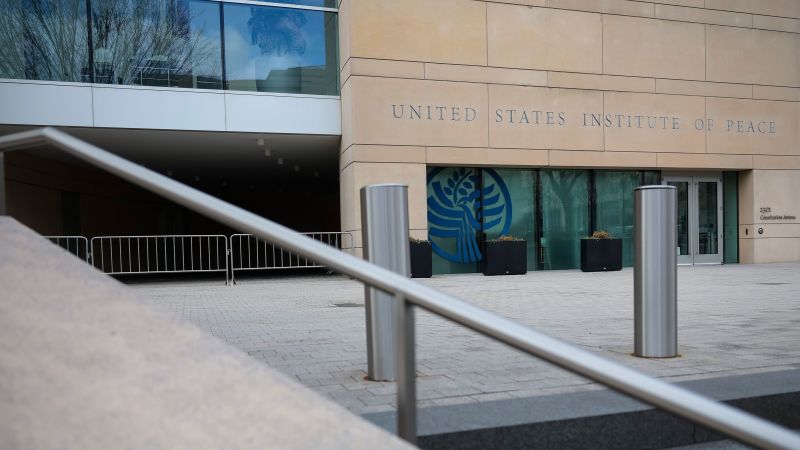Employees at the United States Institute of Peace (USIP) faced another wave of mass firings this week, following a federal court ruling that allowed the Trump administration to proceed with its controversial staffing changes. Multiple former employees reported that the Department of Government Efficiency (DOGE) delivered termination notices to workers, stating that only a small number would remain to complete essential operations.
Liz Callihan, a former senior adviser for strategic engagement at USIP, expressed her dismay over the firings. She described the recent actions as a continuation of DOGE’s “cruel indifference” to the dedicated workforce at USIP. Callihan stressed the implications of these firings, highlighting the immediate cessation of crucial training, education, and research work that the institute conducts globally in conflict resolution.
As the administration works to reshape the role of the United States abroad, it has faced backlash for its approach to federal staffing. In recent months, some federal agencies have started to rehire employees after recognizing the need to fill critical gaps.
The timeline of events is striking. Employees initially received termination letters on March 28, 2024, but a federal judge later ruled in May that the Trump administration unlawfully removed USIP’s board, deeming subsequent actions by DOGE “null and void.” In late June, however, a federal appeals court issued a stay on that ruling, leading to the recent firings.
Callihan, who joined USIP in 2012, described the emotional toll of the constant changes as “devastating.” She was part of a “landing team” brought back to restore operations after the initial round of layoffs. Those employees began receiving their termination notices on Friday afternoon, while furloughed staff received their letters later that evening.
Another employee, Hodei Sultan, who also served on the landing team and has been with the institute since 2009, shared her feelings on the firings. Sultan, who oversaw operations within the Asia center, characterized the impact as “really horrific.” She noted the tendency for the administration to announce mass firings late at night, coining the term “Friday massacre” for both recent events.
Callihan further commented on the current landscape, stating, “DOGE succeeded in getting a stay of the district court’s order. Having regained control of USIP, DOGE is renewing its mistreatment of USIP employees and its systematic dismantling of an institution authorized by Congress to promote peacebuilding efforts around the world.”
USIP, established by Congress in 1984, operates as a nonpartisan, independent body focused on international peace and conflict resolution. Its mission emphasizes research, policy analysis, education, and training, aiming to prevent and resolve violent conflicts while promoting post-conflict stability.
In a broader context, the Trump administration has recently secured significant legal victories, including a ruling from the Supreme Court that supports its efforts to carry out mass firings and reorganizations within federal agencies. This ruling put a hold on a lower court order that had previously restricted the president’s ability to make such changes without congressional approval.
The recent firings at USIP are part of a larger trend within the administration aimed at reducing the size of the federal government. The State Department also initiated a significant staffing overhaul, terminating over 1,300 employees as part of its restructuring efforts. This impacted 1,107 civil service and 246 foreign service officers, many of whom worked on critical issues such as countering violent extremism and supporting Afghan refugees.
Sultan pointed out the potential repercussions of these mass firings on the United States’ global standing. She noted, “We’re completely self-isolating from the world and pulling away from vital foreign assistance programs that were more than just helping people in other countries. They really were about flexing our soft power approach and ensuring that we were a credible partner on the world stage.”
As the situation unfolds, the implications for USIP’s mission and the broader landscape of US foreign policy remain uncertain. CNN has reached out to the White House for further comment regarding the recent firings.








































































